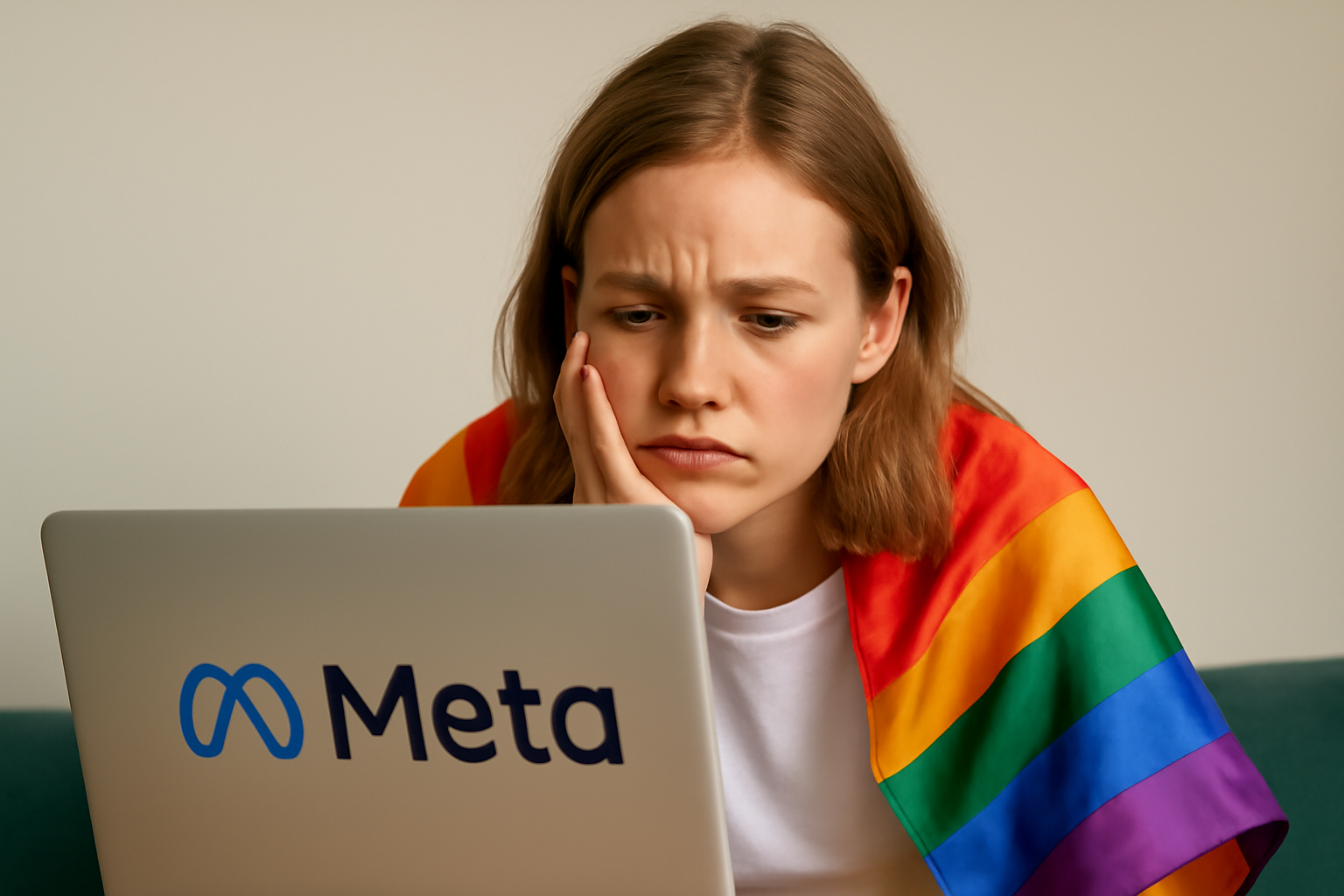
Meta, the parent company of Instagram, recently faced backlash for restricting content tagged with LGBTQ+ hashtags. These actions, initially reported by journalist Taylor Lorenz, have sparked concerns about censorship and the marginalization of LGBTQ+ communities on popular social media platforms.
The Restricted Hashtags
Among the hashtags affected were #lesbian, #bisexual, #gay, #trans, #queer, #nonbinary, #pansexual, #transwomen, #Tgirl, #Tboy, #Tgirlsarebeautiful, #bisexualpride, and #lesbianpride. These terms were hidden under Instagram's "sensitive content" policy. This policy targets what it considers "sexually suggestive content," resulting in the unintended suppression of LGBTQ+ content.
The restriction was automatically applied to users under 18, resulting in blank pages when teenagers searched for these hashtags. This automatic filter was part of a broader initiative to protect minors from potentially inappropriate content. However, the inclusion of LGBTQ+ hashtags in this category raised serious concerns.
Response from Meta
Upon learning of these restrictions, Taylor Lorenz reached out to Meta for comments. The company quickly responded by lifting the restrictions. "These search terms and hashtags were mistakenly restricted," a Meta representative stated. "We strive to ensure that all communities feel safe and welcome on our platforms, and LGBTQ+ terms are not considered sensitive under our policies." Meta's swift response highlights the importance of community feedback in shaping social media policies.
Implications for the LGBTQ+ Community
Leanna Garfield, social media safety program manager at GLAAD, expressed concerns about the implications of these restrictions. "Categorizing LGBTQ hashtags as ‘sensitive content’ is an alarming example of censorship that should concern everyone," Garfield said. She emphasized that for many LGBTQ+ individuals, especially youth, platforms like Instagram are vital for self-discovery and community building. Restricting access to LGBTQ+ content could inadvertently contribute to the isolation and marginalization of these users.
The restrictions also led to shadow bans and reduced visibility for LGBTQ+ creators, impacting their ability to reach audiences. The community relies on platforms like Instagram to share stories, connect with others, and access supportive information. Limiting their reach can have significant consequences.
Broader Context of Content Restrictions
Content restrictions for minors have been a major focus for lawmakers, particularly among Republican legislators. The Kids Online Safety Act has been a driving force behind the push for tighter controls by social media companies. Many platforms are considering or have implemented restrictions on content visible to youth. Countries like Australia have even taken steps to ban youth social media usage entirely.
In the United States, a potential ban on TikTok looms, with debates about foreign interference from the China-based app gaining traction. The Supreme Court is set to hear arguments concerning the ban, which could have significant implications for LGBTQ+ creators and users who rely on TikTok for community and news.
These developments highlight the delicate balance social media companies must maintain in protecting young users while ensuring access to diverse and inclusive content. The unintended consequences of policies designed to shield minors can have far-reaching impacts, especially on marginalized communities.
Conclusion
Meta's recent actions regarding LGBTQ+ content serve as a reminder of the challenges faced by social media platforms in moderating content. While protecting young users is crucial, it is equally important to ensure that policies do not inadvertently harm marginalized communities. The swift reversal of the restrictions demonstrates the power of community advocacy and the need for ongoing dialogue between social media companies and the communities they serve.
As the digital landscape continues to evolve, platforms like Meta must remain vigilant in their efforts to create inclusive and safe online spaces. By listening to user feedback and adapting policies accordingly, they can better serve diverse communities and foster connections across the globe.
Related Posts
Fantastic Four: First Steps Unveils Marvel's Powerful, Pansexual Hero
**The Fantastic Four: First Steps - A New Era Begins** *The Fantastic Four: First Steps* kicks off an exciting chapter in Marvel's cinematic universe by introducing a key player: Franklin Richards. This adaptation, much like its comic book inspiration, takes us on a journey as Franklin grows from a baby with mysterious abilities, eventually becoming one incredibly powerful character in Marvel's l [...]
The Evolution of NFL Draft Scouting Reports: From Vivid Descriptions to Bland Profiles
While scrolling through dating app profiles not too long ago, I came across some strikingly descriptive lines that caught my eye: - "V-shaped torso with a well-defined upper body, good bubble, developed calves, and good chest thickness." - "Muscular frame with well-developed arms, shoulders, and chest, thick thighs and calves, a tight waist and abdomen, and good bubble." - "Solid, thick build wit [...]
Rep. Andrea Salinas Advocates for the Protection of LGBTQ+ Crisis Support Line
A mother's mission: standing up For LGBTQ+ mental health When Rep. Andrea Salinas (D-OR) got a frantic call from her daughter, who identifies as a lesbian, she felt a wave a fear wash over her. Every parent knows that feeling—the desperate urge, almost an ache, that you have when your child's in pain. "It's harrowing being on that call, promising help when every instinct screams that you need m [...]